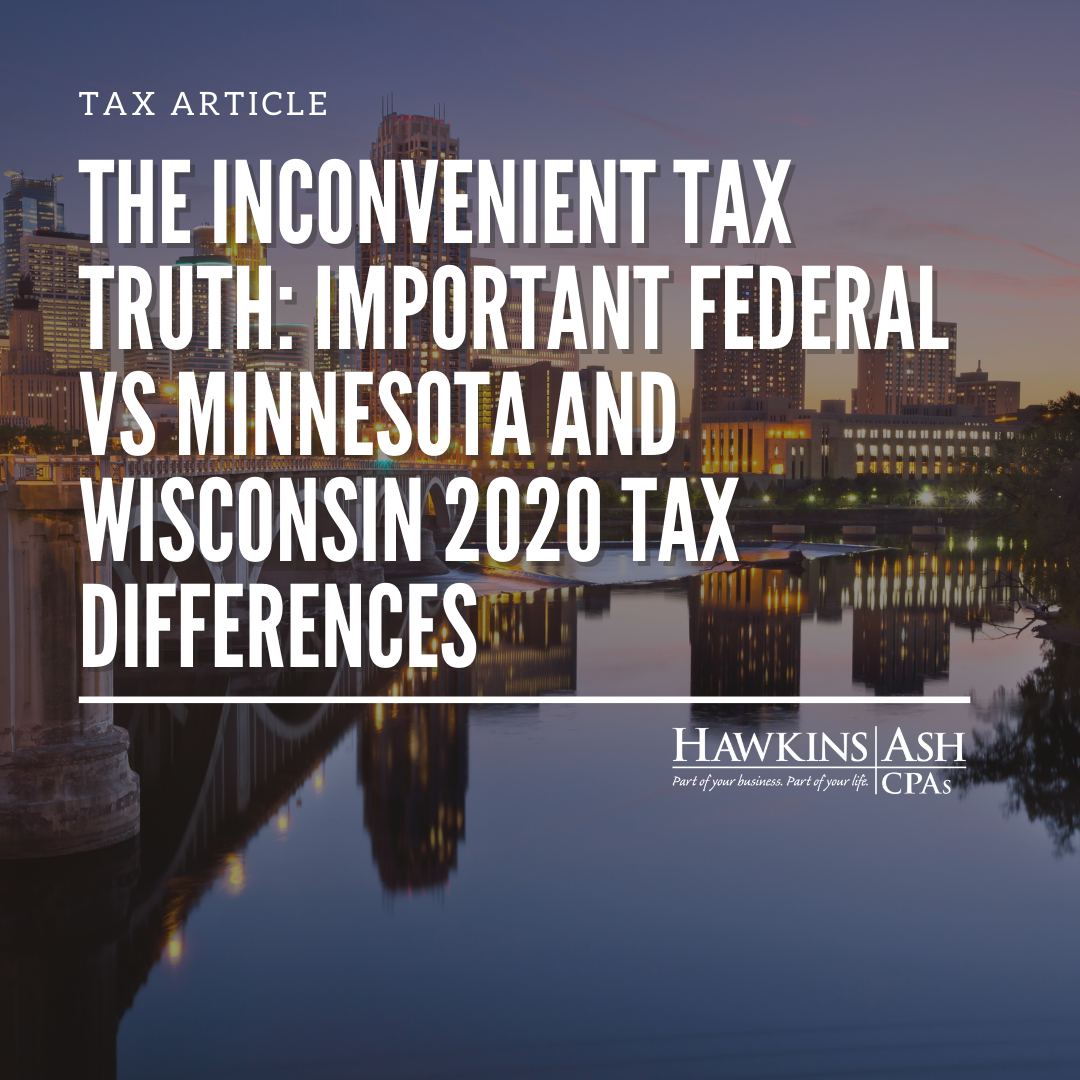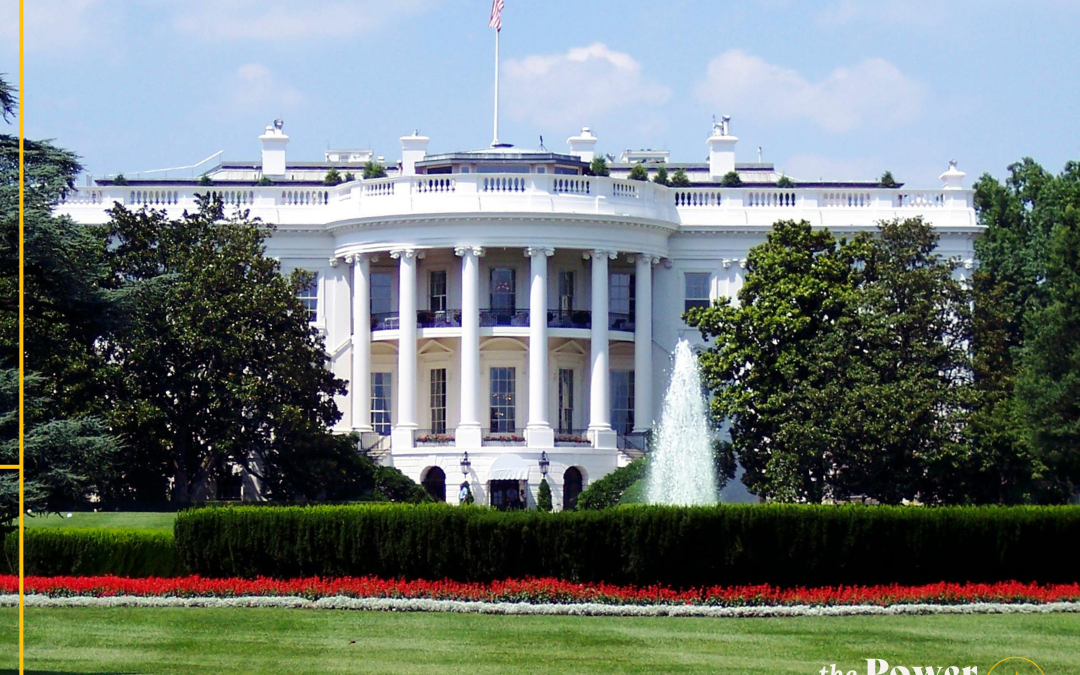The federal Consolidated Appropriations Act, 2021 (the Act) (Public Law 116-260) enacted on December 27, 2020, brought some very welcome changes to the federal tax code. However, until the State legislatures of Minnesota and Wisconsin adopt the most recent federal tax law changes, we will need to deal with some differences in the tax treatment of some significant provisions. This article details the provisions of the Act that have not been adopted into the tax law and will affect the filing of 2020 state income/franchise tax returns.
Paycheck Protection Program Forgiveness and Expenses
One of the significant differences between the current federal tax law and the Minnesota and Wisconsin tax law is the treatment of Paycheck Protection Program (PPP) forgiveness and expenses. The Act provides that the loan forgiveness is excluded and expenses paid with forgivable PPP loan proceeds are deductible for federal tax purposes (see secs. 276(a) and 278(a) of Division N of Public Law 116-260).
Minnesota law does not conform to the exclusion of the forgiveness from taxable income. The amount of the forgiveness will need to be added back to the Minnesota returns. Due to inclusion of the loan forgiveness as income, the related payroll expense to the PPP loan forgiveness is fully deductible for the Minnesota income tax returns.
Wisconsin law follows federal law prior to amendments made by the Act. Therefore, incurred expenses that are paid with the forgivable PPP funds are not deductible for Wisconsin income/franchise tax purposes. Wisconsin follows the interpretation of federal law prior to modification by the Act, which is described in Revenue Ruling 2020-27:
“A taxpayer that received a covered loan guaranteed under the PPP and paid or incurred certain otherwise deductible expenses listed in section 1106(b) of the CARES Act may not deduct those expenses in the taxable year in which the expenses were paid or incurred if, at the end of such taxable year, the taxpayer reasonably expects to receive forgiveness of the covered loan on the basis of the expenses it paid or accrued during the covered period, even if the taxpayer has not submitted an application for forgiveness of the covered loan by the end of such taxable year.”
Even though Revenue Ruling 2020-27 was made obsolete as a result of the Act, it still interprets federal law prior to the Act. Until Wisconsin adopts the Act into law, Revenue Ruling 2020-27 remains the relevant guidance on the deductibility of these expenses.
The Act excludes any subsequent PPP loan proceeds forgiveness from gross income for federal purposes (see sec. 276(b) of Division N of Public Law 116-260). Taxpayers will need to include any future PPP loan proceeds forgiven in both the Minnesota and Wisconsin gross income.
Sign Up to Receive Email Updates
Be sure you’re getting the latest insights as legislative developments occur. We’re here for you with tax insights and business resources.
Sign Up Now
Other Grants and Subsidy Payments
The exclusion of other grants and relief payments from federal gross income will also receive different treatment under the current Minnesota and Wisconsin tax code. The Act provides that emergency Economic Injury Disaster Loan (EIDL) grants and targeted EIDL advances are excluded from gross income for federal purposes (see sec. 278(b) of Division N of Public Law 116-260). The Act includes the grants for shuttered venue operations as excluded from gross income for federal purposes (see sec. 278(d) of Division N of Public Law 116-260). The Act also provides that subsidy for certain loan payments are excluded from gross income for federal purposes (see sec. 278(c) of Division N of Public Law 116-260). Taxpayers in both Minnesota and Wisconsin must include each of these payments in their gross income.
Earned Income Credits
Lastly, the Act allows a taxpayer to elect to use their 2019 earned income to compute the 2020 federal earned income tax credit (see sec. 211 of Division EE of Public Law 116-260) if the 2020 earned income is less than 2019 earned income.
Under current Wisconsin law, taxpayers can only use their 2020 income to compute the Wisconsin earned income tax credit. Therefore, if a taxpayer elects to use their 2019 earned income to compute their 2020 federal earned income tax credit, the taxpayer will be required to recalculate the federal earned income tax credit using their 2020 earned income credit for Wisconsin purposes. This may result in a reduced Wisconsin earned income credit.
Minnesota has the Working Family Credit in place of the Federal Earned Income Credit. While the qualifications for the MN Working Family Credit are based on the Federal EIC rules, the current state tax law does not include the option to use the 2019 income amounts for the 2020 tax returns.





